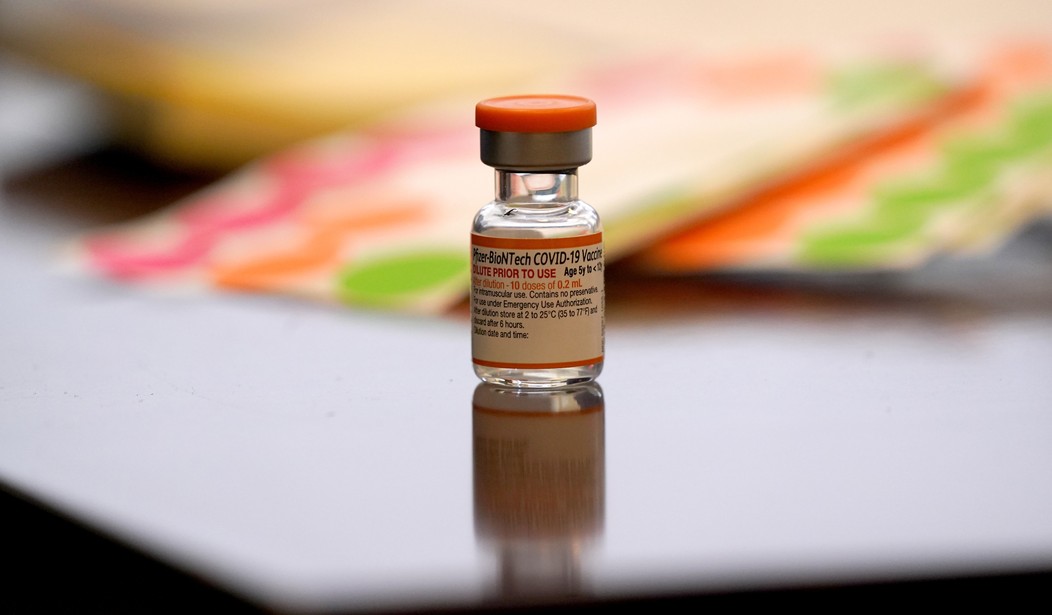Readers of RedState and quasi-close followers of politics undoubtedly are aware that congressional hearings can sometimes be entertaining, if not downright fiery. And while it’s often the members of Congress who make the highlight reel for their questioning, sometimes, the witness testimony grabs the headlines.
Lively legislative hearings aren’t limited to the United States Congress, however. Equally fiery committee hearings are held in legislative bodies around the world. One such hearing took place on August 3rd before the Australian Senate’s Committee on Education and Employment Legislation. The subject of the hearing was the “COVID-19 Vaccination Status (Prevention of Discrimination) Bill 2022 and the Fair Work Amendment (Prohibiting COVID-19 Vaccine Discrimination) Bill 2023.” The witnesses included executives from Pfizer and Moderna, as well as officials with the Therapeutic Goods Administration (TGA) (somewhat akin to the U.S. Food and Drug Administration (FDA)).
The entire two-hour proceeding can be viewed here, but it was this stunning exchange between One Nation Senator Pauline Hanson and Pfizer Australia execs Dr. Brian Hewitt, Head of Regulatory Sciences, and Dr. Krishan Thiru, Country Medical Director, that was jaw-dropping.
Have a listen to Pfizer's answer to my question about whether any Australians were forced to choose between the jab or their job.
I suspect many Australians will disagree with their answer. pic.twitter.com/MCTyvLSxSm
— Pauline Hanson 🇦🇺 (@PaulineHansonOz) August 4, 2023
Sen. Hanson: Dr. Thiru, you actually made a comment that “No one was forced to have the vaccination”—who made the comment? Was it Dr. Thiru? Or Dr. Hewitt?
Dr. Hewitt: Actually, Senator, I believe I made that comment.
Sen. Hanson: You made that comment? Right. You were in Australia during COVID-19. You must have been fully aware that people—nurses, doctors—people, to have their jobs, to keep their jobs, were forced to have the vaccination. Now, do you retract your statement that they were not forced?
Dr. Hewitt: Senator, no, I believe firmly that nobody was forced to have a vaccine. Mandates or vaccine requirements are determined by governments and health authorities. I believe everybody was offered an opportunity to get a vaccine or not get a vaccine. I don’t believe that anybody was forced to take a vaccine.
Sen. Hanson: A lot of Australians will disagree with you on that one.
Setting aside the semantics in which Hewitt engaged here, while I’m no body language expert, I couldn’t help but notice that he looked rather uncomfortable during the exchange and repeatedly looked down as if he needed to consult his notes to confirm what was really a rather simple—albeit audacious—remark. And then notice the slow blink when he says, “I don’t believe that anybody was forced to take a vaccine.”
Right, Dr. Hewitt. Just like I don’t believe you were forced to make that statement. (I sure hope he’s not a Poker player.)
Hanson’s prediction was spot-on, as a number of Australians chimed in with their thoughts on Hewitt’s dissembling. Except for this unfortunate fellow who determined that “forced” vaccination only contemplates being physically held down and injected—Hanson was fairly quick to set him straight.
— Pauline Hanson 🇦🇺 (@PaulineHansonOz) August 4, 2023
This Digital Content Creator pulled together a pointed montage of officials clearly stating Australians would be given no choice in the matter, with cuts of Hewitt’s feeble “nobody was forced” spliced in between, and for the denouement, Pfizer CEO Albert Bourla smugly acknowledging that the mandates “worked.”
Pfizer told an Australian Senate hearing that "Nobody was forced to have the vaccine", does that statement hold up to the reality faced by millions of people in Australia?
Let's take a look at what "nobody was forced" really looked like.
Bonus take from Pfizer CEO Albert… pic.twitter.com/97nfVWFtm6
— Rukshan Fernando (@therealrukshan) August 5, 2023
There was another exchange between One Nation Senator Malcolm Roberts and Dr. Thiru that got rather testy, particularly in light of Thiru’s repeated, stock answers.
Pfizer Under Question
Watch as I question Pfizer representatives last night in a Senate Hearing.
The company was very reluctant to attend the committee hearing and also reluctant to supply a straight answer, automatically falling back on their 'safe and effective' mantra to… pic.twitter.com/PZmJ7yiW9l
— Malcolm Roberts 🇦🇺 (@MRobertsQLD) August 4, 2023
I found the exchange at roughly the 3:30 mark particularly interesting.
Sen. Roberts: Did or does Pfizer have COVID vaccine mandates for your own employees in Australia?
Dr. Thiru: At the height of the pandemic, and consistent with guidance from health authorities from the New South Wales and Victorian governments, Pfizer did have a “colleague vaccination program” for its employees.
Sen. Roberts: Did you—do you still have it?
Dr. Thiru: That vaccine mand—uh, that requirement for colleague vaccination for Pfizer employees is currently present. We introduced a colleague vaccination program in the interest of protecting the health and safety of our colleagues and the communities in which we serve—in which they, uh, we operate.
Notice how Thiru’s initial answer to the question about Pfizer’s mandate for its own employees is framed in the context of “the height of the pandemic” and notes they did have such a mandate, implying that they no longer do. But then, when asked the follow-up about whether it’s still in place, he acknowledges that, in fact, it still is.
This next bit caused a bit of a stir as well:
Sen. Roberts: We’ve read that your vaccine mandate was using your own batch of vaccine especially imported for Pfizer which was not tested by the TGA. Is that correct?
Dr. Hewitt: Uh, Senator, so Pfizer undertook to import a batch of vaccine specifically for the employee vaccination program, and that was so that no vaccine would be taken from government stocks that was being delivered to clinics as needed.
This raises a number of questions: Imported from where? Was it the same composition as that being issued by the government? Was it just Pfizer Australia that did this? (That it was “imported” seems to imply so.) Pfizer Australia appears to have fewer than 500 employees—why or how would distributing the vaccine to them have measurably depleted “government stocks”?
Sen. Roberts and others have inferred that this admission indicates the “batch” imported for Pfizer employees was, in fact, different from that provided to the general public.
Pfizer thinks no one was FORCED to have a Covid injection
Pfizer says people had the opportunity
…
Yet imported a special injection only for Pfizer employees
After Pfizer’s misrepresentations & evasions at Friday’s hearings: Senate Inquiry now. Then Royal Commission pic.twitter.com/bSAHigXW7T
— Malcolm Roberts 🇦🇺 (@MRobertsQLD) August 5, 2023
It’s a bit difficult to determine presently whether that is the case, however. A Google search of “Pfizer Australia” yields a stunning paucity of news items related to these hearings. And even searches regarding the details of the imported batch yield very little information. Makes one wonder about algorithms, no?
Following the hearing, Hanson issued a media release calling for the mandates to be dropped “to allow skilled workers back into much-needed jobs,” particularly in light of the fact that “People are now allowed to travel overseas and move freely in Australia—including into public health settings and aged care homes—regardless of their vaccination status.”
Media Release | COVID-19 vaccine mandates must go pic.twitter.com/gd8etJBOZX
— Pauline Hanson 🇦🇺 (@PaulineHansonOz) August 4, 2023
The Committee is set to release its report on the proposed legislation by August 25th. Not being intimately acquainted with the Australian legislative process, it’s difficult to discern whether the legislation is likely to be advanced, but kudos to Senators Hanson and Roberts (and others) for asking the tough questions and helping to shine a much-needed light on the topic.














